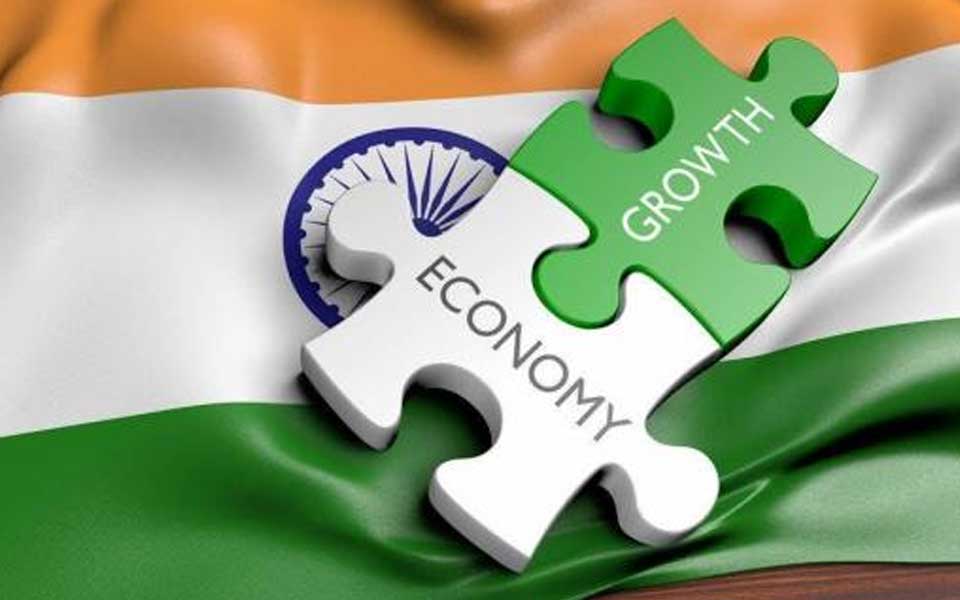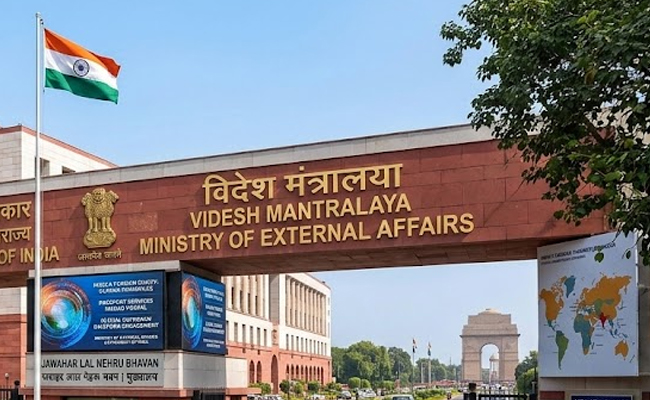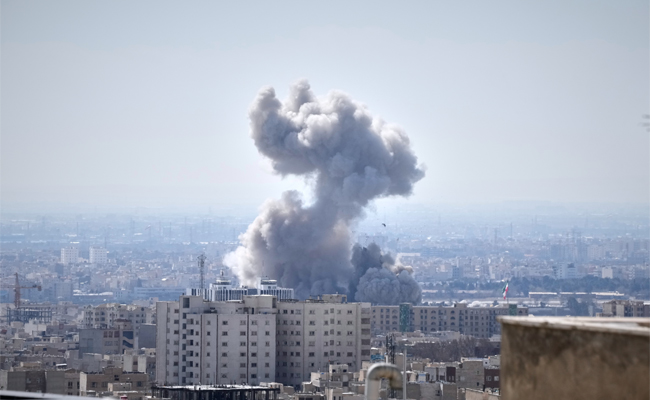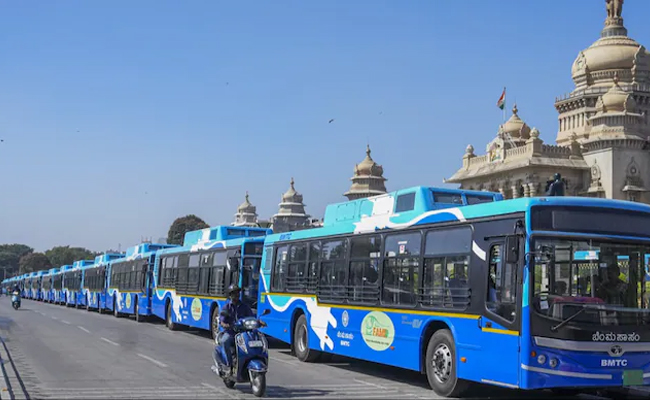Washington: India's economy is projected to grow at 7.5 per cent in the next three years, supported by robust investment and private consumption, the World Bank has forecast, in some good news to the new Indian government.
The bank in its Global Economic Prospects released Tuesday said that India is estimated to have grown 7.2 per cent in fiscal year 2018/19, which ended March 31.
A slowdown in government consumption was offset by solid investment, which benefitted from public infrastructure spending.
As against a growth rate of 6.6 per cent in 2018, China's growth rate in 2019 is projected to be dropped to 6.2 per cent and then subsequently to 6.1 per cent in 2020 and 6 per cent in 2021, the World Bank said.
With this, India will continue to retain the position of being the fastest growing emerging economy. And by 2021, its growth rate is projected to be 1.5 per cent more than China's 6 per cent.
The World Bank's report came as a good news for India days after Data from Central Statistics Office (CSO) showed that India's economic growth slowed to a five-year low of 5.8 per cent in fourth quarter of 2018-19, pushing the country behind China.
The decline in the economic activity has been attributed by the CSO to steep decline in growth in agriculture and manufacturing sectors.
According to the World Bank, growth in India is projected at 7.5 per cent in Fiscal Year 2019/20 (April 1, 2019 to March 31, 2020), unchanged from the previous forecast, and to stay at this pace through the next two fiscal years.
"Private consumption and investment will benefit from strengthening credit growth amid more accommodative monetary policy, with inflation having fallen below the Reserve Bank of India's target, it said.
Support from delays in planned fiscal consolidation at the central level should partially offset the effects of political uncertainty around elections in FY2018/19, it said.
The World Bank said that India's urban consumption was supported by a pickup in credit growth, whereas rural consumption was hindered by soft agricultural prices.
On the production side, robust growth was broad-based, with a slight moderation in services and agricultural activity accompanied by an acceleration in the industrial sector. Weakening agricultural production reflected subdued harvest in major crops on the back of less rainfalls, it said.
Services activity softened mainly due to slowing trade, hotel, transport, and communication activity. The industrial sector benefited from strong manufacturing and construction with solid demand for capital goods. The slowing momentum in economic activity in late 2018 carried into the first quarter of 2019, as suggested by softening services and manufacturing Purchasing Managers' Indexes, the report said.
Observing that the new Goods and Services Tax regime is still in the process of being fully established, creating some uncertainty about the projections of government revenues, the report said fiscal deficits continue to exceed official targets in some countries -- India, Pakistan.
The World Bank's report came as New Finance Minister Nirmala Sitharaman is set to present the first budget of the Narendra Modi 2.0 government on July 5. The former defence minister, who inherits a fractured economy, is expected to accelerate the reform process.
In her budget, 59-year-old Sitharaman will have to address slowing economy, financial sector troubles like rising Non-performing Assets and liquidity crisis in non banking financial companies, job creation, private investments, exports revival, agrarian crisis and raise public investment without compromising on fiscal prudence.
Let the Truth be known. If you read VB and like VB, please be a VB Supporter and Help us deliver the Truth to one and all.
New Delhi (PTI): The Ministry of External Affairs (MEA) has set up a control room to assist those affected by the escalating crisis in West Asia.
The MEA has said almost one crore Indian citizens live in West Asia and their safety and well-being is of "utmost priority" for New Delhi.
As the Iran-US conflict widened, the Indian embassy in Iran moved hundreds of Indian students from the Iranian capital of Tehran to safer locations.
"A Control Room has been set up in the Ministry of External Affairs in view of the current situation in West Asia and the Gulf region," the MEA said on Wednesday.
"The Control Room can be contacted from 9 am to 9 pm at: 1800118797 (Toll Free) +91 11 2301 2113, +91 11 2301 4104, +91 11 2301 7905," it added.
The US launched military strikes on Iran on February 28, killing Iranian Supreme leader Ali Khamenei.
Following the military offensive, Iran has carried out a wave of attacks mainly targeting Israel and American military bases in several Gulf countries, including the UAE, Bahrain, Kuwait, Jordan and Saudi Arabia.
The MEA on Tuesday noted that almost one crore Indian citizens live and work in the Gulf region, and their "safety and well-being is of utmost priority."
"We cannot be impervious to any development that negatively affects them," it said.
The MEA said New Delhi will continue to closely monitor the evolving situation and take relevant decisions in the national interest, adding it is in touch with the governments in the region as well as other key partners.
A Special Control Room has been set up in the Ministry of External Affairs in view of the current situation in West Asia and the Gulf region. Details are as below ⬇️
— Randhir Jaiswal (@MEAIndia) March 4, 2026
🔗 https://t.co/nK3d6SY9Pa pic.twitter.com/v2EhUI5B1x




